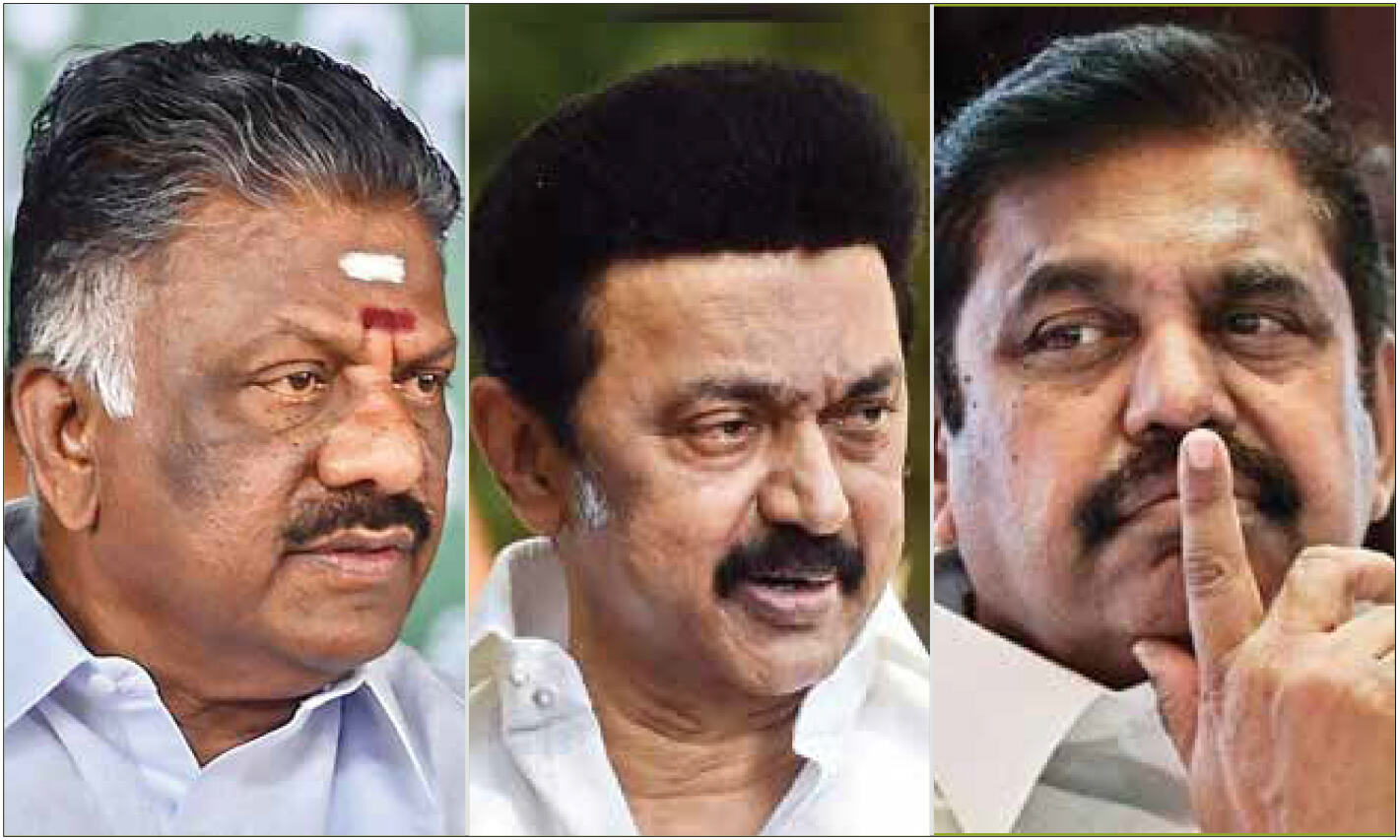A tilt in binary politics
As BJP is stepping up its attack against DMK to usurp the opposition space from AIADMK, both Dravidian parties should strive to retain their legacy

The current crisis that erupted in the AIADMK over single leadership is giving a feeling that it is an internal war between the two leaders. The reality is something different, which is not being brought out by the media in Tamil Nadu. For the past year, the binary politics between the DMK and the AIADMK has undergone a change, which is responsible for this tug of war. The vituperative political attack by both the parties, as a political culture, disappeared from the political scene. The AIADMK had developed an anti-Karunanidhi sentiment among the cadres under MGR, and that legacy had been carried out more intensely by J Jayalalitha throughout her life. When M Karunanidhi was in power, J Jayalalitha would make scathing attack on his government. In the same way, if J Jayalalitha was in power, M Karunanidhi used to make critical comments on the moves of J Jayalalitha and her government. This mutual anti-sentiment had been perpetuated with the view to keeping the respective cadres intact. Winning the election either by the DMK or the AIADMK depended on the electoral alliance and its performance in governance. No other political party in Tamil Nadu has given an impression in the past 50 years that it is going to form a government. Consequently, both parties maintained their hold in Tamil Nadu politics — rendering smaller parties feeble. But at the same time, the two parties enjoyed winning the elections only by allying with the smaller parties. Even the smaller parties had no other option than to align with the DMK or the AIADMK.
After the demise of both the mass leaders — M Karunanidhi and J Jayalalitha — the space left by them is occupied by MK Stalin and the duo of Edappadi K Palanisamy and O Panneerselvam. The dual leadership, on one hand, has kept the unity in the party intact while on the other hand, it has weakened the party.
Ever since K Annamalai took over the leadership of the Tamil Nadu BJP, he adopted the strategy of attacking the DMK government and its policies vehemently. He is very aggressive in attacking the DMK as if the BJP is the main opposition party. His mobilisation and aggressive political activities have shifted the configuration of binary politics from DMK-AIADMK to DMK-BJP. By showing his tough opposition to the DMK, he has drawn the support of youth groups from the smaller parties — more specifically, Tamil outfits. He has formed an impression that he is a staunch opponent of the DMK and hence he got the support of the youth who want to oppose the DMK. As the AIADMK is not vehemently attacking the DMK, K Annamalai has used this opportunity to bring his party to the center stage in opposing the DMK, as it was done by J Jayalalitha. If such politics continues, cadres from the AIADMK will irreversibly move towards the BJP. This is realised by both Edappadi K Palanisamy and his supporters — leading them to campaign for single leadership for the party. There is yet another reservation from the Kongu belt that weakening Edappadi K Palanisamy will weaken the power of the business groups from the same area.
This has resulted in a war between the two leaders of the AIADMK. It is not a fight for keeping the party alive and active under one leader, as it was during the regime of MGR and J Jayalalitha. Indirectly, it is a threat to the DMK as well if the BJP emerges as the principal opposition party. The DMK and the AIADMK did politics smoothly, and alternatively carried out the Dravidian Model of Development. If the AIADMK is not strengthened now, the BJP in Tamil Nadu will emerge as a factor to counter the DMK, and the whole course of politics will be different from the present binary politics. Regionalism and ethnicity have been the foundations of state politics over the past fifty years. If the BJP emerges as a major contender, a new kind of binary politics between national and regional political parties will take shape. For the past fifty years, both the DMK and the AIADMK prevented people from taking serious note of corruption. In Tamil Nadu, corruption is not a serious issue. At one point in time, Indira Gandhi took it seriously and booked DMK leaders on corruption charges based on the petitions given by MGR, but later, the issue dissipated as she aligned with the DMK to win the Lok Sabha elections.
Now, K Annamalai has taken up the corruption issue and attacked the present DMK government. This discourse is picking up slowly among the middle class and a section of the poor. The slow departure of youth from the smaller political parties to the BJP and the crowd pulled by K Annamalai gives a sense that if the AIADMK continues to be dormant without having active opposition politics, then the space will be occupied by the BJP. The AIADMK second-level leaders too have realised the fact, and concluded that strong leadership is the need of the hour. If Edappadi K Palanisamy succeeds in his current attempts, the political career of O Panneerselvam will be bleak. If a split takes place in the AIADMK, the opportunity will be for the BJP.
It is a do or die situation for all as K Annamalai demonstrates his vibrant leadership through his continuous opposition activities against the ruling DMK. So, it is not an EPS vs OPS war; it is a fight over leadership and ideological change and transformation.
The writer is a former Professor and Rajiv Gandhi Chair for Panchayati Raj Studies, Gandhigram Rural Institute. Views expressed are personal



